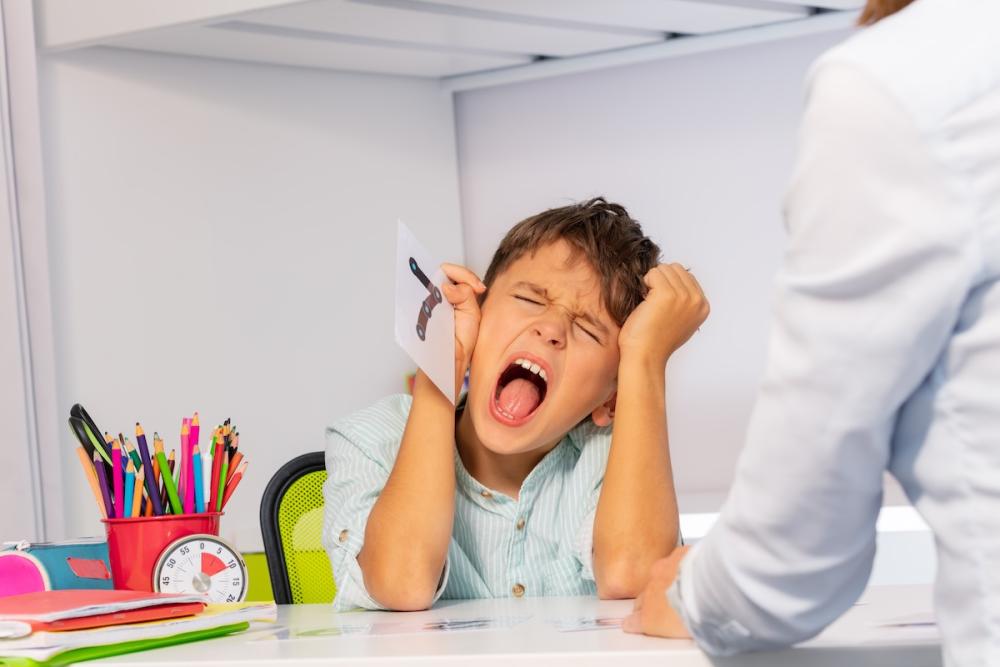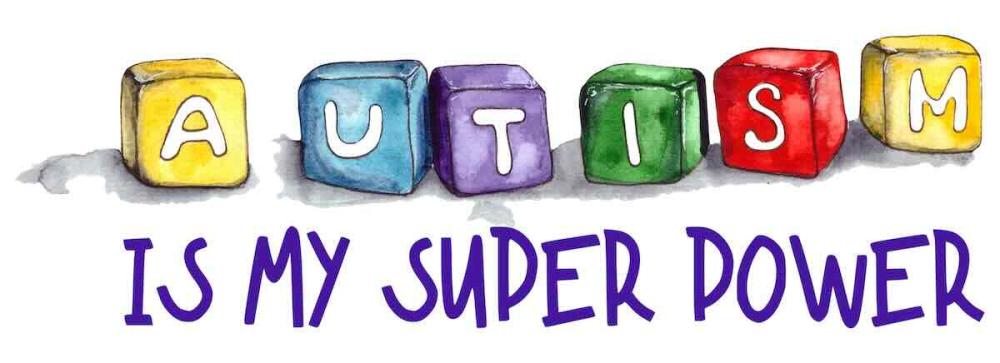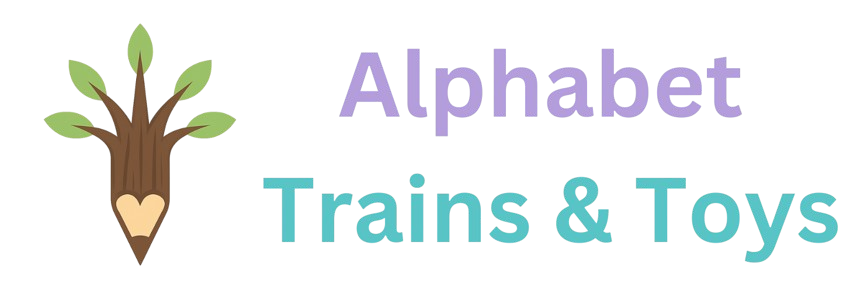Understanding Autism: Frequently Asked Questions
Autism Spectrum Disorder (ASD) is a complex neurodevelopmental condition affecting millions worldwide. Understanding the signs, symptoms, and treatment options is essential for anyone looking to support autistic individuals or learn more about the spectrum. This FAQ blog is designed to answer common questions about autism, providing insights into the experiences and challenges faced by autistic individuals and their families.
1. Can autistic people live a normal life?
Yes, autistic people can live fulfilling lives, including successful careers and relationships. Support and routines often help manage symptoms. For more, visit the National Institute of Mental Health (NIMH).
2. What are the 5 main symptoms of autism?
Autism typically involves:
- Difficulty with social interactions
- Repetitive behaviors
- Communication challenges
- Sensory sensitivities
- Restricted interests
For more, visit the Centers for Disease Control and Prevention (CDC).
3. Do autistic children love their parents?
Absolutely, though expressions may differ due to social challenges. Studies show strong attachments similar to non-autistic children. Visit the National Autistic Society.
4. What does autism do to a person?
Autism affects perception and interaction, impacting social skills and behavior, while also enhancing focus and creativity. Learn more at Autism Speaks.
5. Can you self-diagnose autism?
Self-diagnosis offers insights, but professional evaluation is essential for an accurate diagnosis and support. The National Institute of Mental Health provides guidelines.
6. How to cope with autistic kids?
Supporting autistic children involves understanding their needs, establishing routines, using clear communication, and providing sensory-friendly environments. Engaging with support groups and educational resources can also be beneficial. The CDC offers parenting tips for children with autism.
7. Can a mild autistic child become normal?
"Normal" is a relative term. Children with mild autism can develop coping strategies and skills to manage their symptoms effectively. Early intervention and continuous support play a significant role in helping them lead fulfilling lives. Refer to the Mayo Clinic for more information.
8. Can you live a normal life with autism?
Yes, many people with autism live normal and fulfilling lives. With the right support and accommodations, they can achieve their goals and aspirations. The Autism Society provides resources on living with autism.
9. What is the main symptom of autism?
The main symptom of autism is difficulty with social communication. This can manifest as challenges in understanding social cues, maintaining conversations, and forming relationships. For more information, visit the American Psychiatric Association.
10. Are there different degrees of autism?
Yes, autism is a spectrum disorder, meaning it varies widely in severity and manifestation. Some individuals may require significant support, while others may lead largely independent lives. The National Autistic Society discusses the different degrees of autism.
11. How do I know if I am slightly autistic?
Signs of mild autism include difficulty with social interactions, a preference for routines, sensory sensitivities, and intense focus on interests. A formal assessment by a professional is recommended. The National Autistic Society offers resources on self-assessment and support.
12. How do you test for autism?
Autism testing typically involves:
- Developmental screenings
- Comprehensive diagnostic evaluations
- Observations and interviews with family members
- Standardized assessment tools
The CDC provides detailed guidelines on autism diagnosis.
13. Who are the best doctors for autism?
The best doctors for autism include developmental pediatricians, child psychologists, child psychiatrists, and neurologists who specialize in autism spectrum disorders. The Autism Society can help you find specialists.
14. Can a person have ADHD and autism?
Yes, it is possible to have both ADHD (Attention Deficit Hyperactivity Disorder) and autism. This is known as comorbidity, and individuals with both conditions may exhibit a mix of symptoms from both disorders. The CDC provides more information on this.
15. What do ADHD and autism together look like?
When ADHD and autism occur together, individuals may have challenges with attention, hyperactivity, impulsivity, social interactions, and communication. They might also exhibit repetitive behaviors and sensory sensitivities. More details can be found on the Autism Speaks website.
16. What does high-functioning autism look like?
High-functioning autism, often associated with Asperger's Syndrome, includes:
- Strong language skills but difficulty with social interactions
- Intense focus on specific interests
- Sensory sensitivities
- Repetitive behaviors
For more information, refer to the Autism Society.

17. How to tell ADHD from autism?
While both ADHD and autism can involve attention issues and impulsivity, autism also includes social communication difficulties and repetitive behaviors. A professional evaluation can help differentiate between the two. The CDC offers guidance on differentiating these conditions.
18. Is ADHD stimming the same as autism?
Stimming (self-stimulatory behavior) can occur in both ADHD and autism. However, in autism, stimming is often used to manage sensory input or stress, whereas in ADHD, it might be more related to hyperactivity or impulsivity. More information can be found on the Autism Research Institute.
19. Are there toys that can help with autism or ADHD?
Yes, educational toys such as fidget spinners, sensory balls, puzzles, and building blocks can help autistic and ADHD individuals. These toys can improve fine motor skills, focus, and sensory processing. The Autism Speaks provides a guide to toys that can help.
20. What are the differences between ADHD and autism?
Key differences between ADHD and autism include:
- ADHD primarily involves issues with attention and hyperactivity.
- Autism involves social communication challenges and repetitive behaviors.
- Sensory sensitivities are more common in autism.
For more information, visit the National Institute of Mental Health.
21. Can a pediatrician diagnose autism?
Yes, pediatricians can diagnose autism, often in collaboration with specialists such as developmental pediatricians, psychologists, and neurologists. The American Academy of Pediatrics provides more information on the diagnosis process.
22. What is adult autism?
Adult autism refers to autism spectrum disorder diagnosed in individuals over 18. Symptoms may include difficulty with social interactions, communication challenges, and repetitive behaviors, similar to those in children but manifesting differently in adulthood. More information is available on the National Institute of Mental Health website.
23. How early can you diagnose autism?
Autism can be diagnosed as early as 18 months, though many children are diagnosed around age 2-3. Early diagnosis allows for early intervention, which can significantly benefit development. Refer to the CDC for guidelines on early diagnosis.
24. My child is autistic. What should I do?
If your child is diagnosed with autism, seek support from healthcare professionals, educational specialists, and support groups. Establish routines, use clear communication, and create a sensory-friendly environment. The Autism Speaks website offers resources for newly diagnosed families.
25. How do I teach my other children about their autistic sibling?
Teach your children about autism in age-appropriate ways, emphasizing empathy, understanding, and inclusion. Encourage open communication and provide them with resources to learn about autism. The National Autistic Society offers guides for siblings of autistic children.

26. Can an autistic child go to a special school?
Yes, autistic children can attend special schools tailored to their needs. These schools provide specialized support and educational programs designed to help them thrive. More information is available from the Autism Society.
27. What are the best programs for autistic kids?
Some of the best programs for autistic kids include:
- Applied Behavior Analysis (ABA)
- Speech and language therapy
- Occupational therapy
- Social skills training
- Special education services
The Autism Speaks website provides more details on these programs.
28. Are there any successful autistic people?
Yes, many successful people are on the autism spectrum, including:
- Temple Grandin (scientist and autism advocate)
- Dan Aykroyd (actor and comedian)
- Satoshi Tajiri (creator of Pokémon)
Read more about successful autistic individuals on the Autism Society website.
29. Can autism be cured?
There is currently no cure for autism. However, various therapies and interventions can help manage symptoms and improve quality of life. For more information, visit the National Institute of Mental Health.
30. What are some medications for autism and what are their side effects?
Medications can help manage symptoms such as anxiety, depression, and hyperactivity. Common medications include antipsychotics (e.g., risperidone), antidepressants, and stimulants. Side effects vary but can include weight gain, drowsiness, and gastrointestinal issues. The Mayo Clinic provides detailed information on medications and side effects.
31. How do parents cope with autistic kids?
Parents can cope by seeking support from professionals and support groups, establishing routines, practicing self-care, and using resources to educate themselves about autism. The CDC offers tips for coping.
32. What are the early signs of autism?
Early signs of autism include:
- Delayed speech and language skills
- Lack of eye contact
- Limited interest in social interactions
- Repetitive behaviors
- Sensory sensitivities
The CDC provides a comprehensive list of early signs.
33. What are some symptoms of autism that parents and caregivers can look for?
Parents and caregivers should look for:
- Difficulty with social interactions
- Communication challenges
- Repetitive behaviors
- Sensory sensitivities
- Intense focus on specific interests
More information is available at the National Institute of Mental Health.
34. What is the difference between autism and Asperger's disorder?
Asperger's disorder, now part of the broader autism spectrum, involves milder symptoms. Individuals with Asperger's typically have strong language skills but struggle with social interactions and have restricted interests. Visit the Autism Society for more details.
35. Are there treatments available for autism?
Yes, treatments for autism include behavioral therapies, speech and language therapy, occupational therapy, and social skills training. Early intervention and tailored support are crucial. The Mayo Clinic provides more information on available treatments.
36. Are there medication treatments for autism?
While there is no medication to cure autism, medications can help manage specific symptoms such as anxiety, depression, and hyperactivity. Consult a healthcare provider for a treatment plan. The National Institute of Mental Health offers guidance on medication treatments.
37. How does autism affect adults differently than children?
Autism affects adults and children differently. Adults may have more refined coping mechanisms but might still struggle with social interactions, employment, and relationships. They may also face challenges related to independent living and mental health. More information is available from the National Institute of Mental Health.
38. What are some common misconceptions about autism?
Common misconceptions about autism include:
- Autism is caused by bad parenting.
- All autistic individuals have intellectual disabilities.
- Autistic people do not feel emotions.
- Autism can be cured.
These misconceptions are debunked by the Autism Society.
39. How can schools better accommodate students with autism?
Schools can accommodate students with autism by:
- Implementing individualized education programs (IEPs)
- Providing sensory-friendly environments
- Offering social skills training
- Using clear and consistent communication
- Training staff on autism awareness
The National Education Association offers resources on accommodating students with autism.

40. What is the prevalence of autism?
Autism affects approximately 1 in 54 children in the United States, according to the CDC.
41. Can adults be diagnosed with autism later in life?
Yes, many adults are diagnosed with autism later in life, often after recognizing lifelong challenges with social interactions and communication. Learn more at the National Institute of Mental Health.
42. What is the difference between autism and ADHD?
Autism primarily involves challenges with social interactions and repetitive behaviors, while ADHD is characterized by inattention, hyperactivity, and impulsivity. The National Institute of Mental Health offers detailed information on both conditions.
43. What are some common strengths of autistic individuals?
Many autistic individuals have strengths such as attention to detail, strong memory skills, and unique problem-solving abilities. Learn more about strengths in autism at the Autism Speaks website.
44. How can employers support autistic employees?
Employers can support autistic employees by providing clear instructions, creating a sensory-friendly work environment, and being flexible with work schedules. The Autism Society offers resources for employers.
45. Are there any financial supports available for families with autistic children?
Yes, families may be eligible for financial supports such as Medicaid waivers, Social Security benefits, and grants from various organizations. The Autism Speaks website lists available financial resources.
46. What role do genetics play in autism?
Genetics are believed to play a significant role in the development of autism, with various genes contributing to the likelihood of being on the spectrum. The National Institute of Mental Health provides insights into genetic factors in autism.
47. Can dietary changes help manage autism symptoms?
While dietary changes alone cannot treat autism, some parents find that certain diets help manage specific symptoms. Consulting with a healthcare provider is recommended. The Autism Speaks website discusses dietary considerations.
48. How can siblings of autistic children be supported?
Siblings of autistic children can be supported through open communication, counseling, and support groups to help them understand and cope with their sibling's condition. The National Autistic Society offers resources for siblings.
49. What are some signs of autism in girls?
Signs of autism in girls can be more subtle and include social withdrawal, intense interests, and a strong need for routine, often leading to later diagnosis compared to boys. The CDC discusses these differences.
50. How does autism affect physical health?
Some autistic individuals may have co-occurring physical health issues, such as gastrointestinal problems, sleep disorders, and epilepsy. Learn more at the National Institute of Mental Health.
51. What is sensory processing disorder, and how is it related to autism?
Sensory processing disorder involves difficulties in processing sensory information and is commonly seen in individuals with autism, affecting their responses to sensory stimuli. The Autism Speaks website offers more information on sensory processing.

Final Thoughts on Autism
Autism is a unique journey for each individual, marked by challenges as well as remarkable strengths. With increased awareness, support, and understanding, society can create more inclusive spaces for autistic individuals to thrive. Whether you’re a parent, educator, or community member, learning about autism is a step towards a more compassionate and supportive environment. For more resources and support, consider visiting organizations like the Autism Society or the National Institute of Mental Health.








